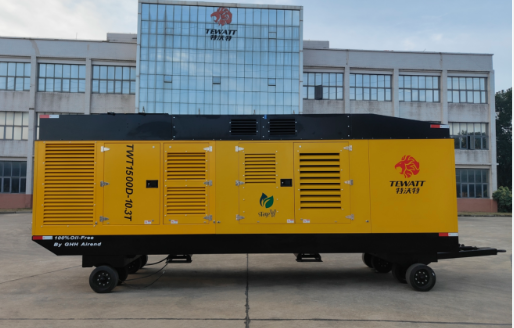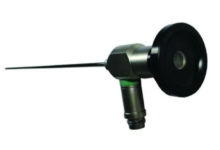Oil-Free Air Compressors: Pros and Cons

Oil-free air compressors are advanced machines designed to deliver clean and contaminant-free compressed air without the use of oil lubrication. They are widely used in industries requiring high-quality compressed air. Here’s a Oil free air compressors: pros and cons comprehensive look at their advantages and disadvantages:
Pros of Oil-Free Air Compressors
1. Clean Air Quality
- Critical Industries: Essential for industries such as pharmaceuticals, food processing, electronics manufacturing, and healthcare where air purity is crucial to prevent product contamination.
- Elimination of Oil Contamination: Ensures compressed air remains free from oil contaminants, meeting stringent air quality standards and regulatory requirements.
Read also: How Udyam Registration Can Help MSMEs in the Food Tech Industry
2. Environmental Benefits
- Reduced Environmental Impact: Eliminates the risk of oil spills and leaks, supporting environmental sustainability efforts.
- Energy Efficiency: Incorporates advanced technologies like variable speed drives (VSD) to optimize energy consumption and reduce greenhouse gas emissions.
3. Lower Maintenance Costs
- Elimination of Oil Changes: Reduces maintenance expenses associated with oil changes, filter replacements, and disposal of oil-contaminated waste.
- Extended Lifespan: Typically have longer operational lifespans due to reduced wear on components, leading to lower overall maintenance costs and downtime.
4. Quiet Operation
- Noise Reduction: Operates quieter than traditional oil-lubricated compressors, making them suitable for noise-sensitive environments such as hospitals, laboratories, and office buildings.
- Improved Workplace Environment: Creates a more comfortable and productive work environment by minimizing noise pollution.
5. Versatility and Reliability
- Wide Range of Applications: Suitable for diverse applications including medical equipment, food packaging, electronics manufacturing, and HVAC systems.
- Reliable Performance: Provides consistent and reliable compressed air for critical processes, ensuring operational efficiency and product quality.
Cons of Oil-Free Air Compressors
1. Higher Initial Investment
- Cost Considerations: Initial purchase cost may be higher compared to oil-lubricated compressors due to specialized design and technology.
- Capital Expense: Requires careful cost-benefit analysis for industries considering adoption.
2. Performance Limitations
- Capacity Constraints: Some models may have limitations in maximum capacity and pressure compared to oil-lubricated counterparts.
- Efficiency Concerns: Less efficient in certain high-demand industrial applications requiring higher volumes of compressed air.
3. Maintenance Requirements
- Precision Maintenance: Requires regular inspection and maintenance of seals, bearings, and other components to ensure optimal performance.
- Specialized Expertise: Maintenance tasks may require specialized knowledge and tools for proper upkeep.
Clean Air Quality
- Critical Applications: Ideal for industries such as pharmaceuticals, food and beverage, electronics manufacturing, and healthcare where air purity is paramount.
- Elimination of Contaminants: Ensures compressed air remains free from oil contaminants, meeting stringent air quality standards and preventing product contamination.
2. Environmental Benefits
- Reduced Environmental Impact: Eliminates the risk of oil spills and leaks, supporting environmental sustainability efforts and compliance with regulatory standards.
- Energy Efficiency: Incorporates advanced technologies like variable speed drives (VSD) and efficient motors to optimize energy consumption and reduce greenhouse gas emissions.
3. Lower Maintenance Costs
- Elimination of Oil Changes: Reduces maintenance expenses associated with oil changes, filter replacements, and disposal of oil-contaminated waste.
- Extended Lifespan: Typically have longer operational lifespans due to reduced wear on components, leading to lower overall maintenance costs and downtime.
4. Quiet Operation
- Noise Reduction: Operates quieter than traditional oil-lubricated compressors, making them suitable for noise-sensitive environments such as hospitals, laboratories, and office buildings.
- Improved Workplace Environment: Creates a more comfortable and productive work environment by minimizing noise pollution.
5. Versatility and Reliability
- Wide Range of Applications: Suitable for diverse applications including medical equipment, food packaging, electronics manufacturing, and HVAC systems.
- Reliable Performance: Provides consistent and reliable compressed air for critical processes, ensuring operational efficiency and product quality.
6. Compliance and Safety
- Regulatory Compliance: Helps businesses meet air quality and safety regulations without compromising on performance or efficiency.
- Health and Safety: Provides clean and contaminant-free air for applications requiring sterile conditions or sensitive equipment.
Conclusion
Oil-free air compressors offer significant advantages including clean air quality, environmental sustainability, lower maintenance costs, quiet operation, versatility, and reliability. However, they may involve higher initial costs and have performance limitations compared to traditional oil-lubricated compressors. Understanding these pros and cons helps industries make informed decisions when selecting compressed air solutions tailored to their specific needs and operational requirements.





